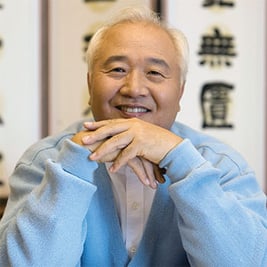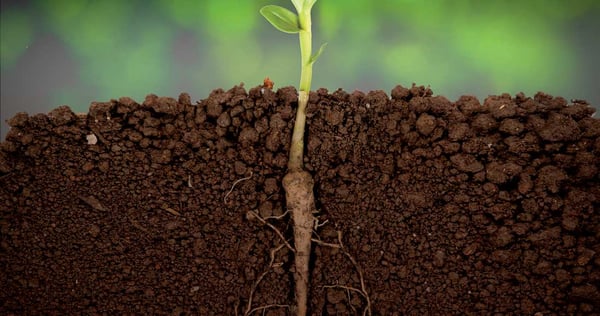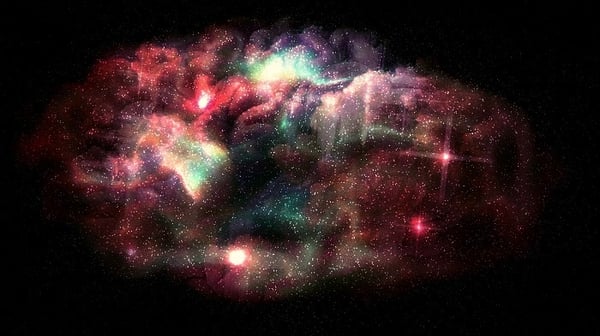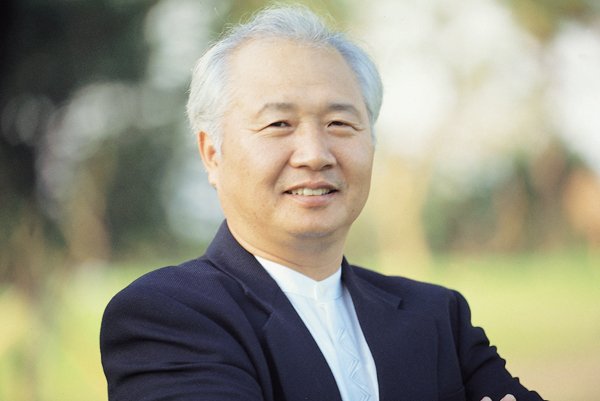What is Spiritual Wellness? Some people define spiritual wellness as an alignment between your values and the way in which you live your life. Others say that it has to do with finding your purpose and living life with compassion for yourself and others.
Spiritual Wellness Definition
We’d agree with both of those spiritual wellness definitions. Spiritual wellness results from alignment with your values and the way you conduct yourself and lead your life. In addition, it's connected to finding your purpose in your work and your power in contribution.
There is a prevalent myth in our culture that achieving spiritual wellness means driving yourself mercilessly. To this way of thinking, “spiritual wellness” means never making a mistake, martyring your own needs, and suffering through intense pain with a smile on your face.
But spirituality and wellness is not about attaining perfection, forcing serenity, or becoming someone you’re not.
What does true wellness look like? The answer will be slightly different for everyone, because every person is unique.
Today, we invite you to consider the possibility that spiritual wellness is simply about being fully alive and deeply connecting with spirit. To help us in this effort, we introduce world-renowned spiritual teacher Ilchi Lee.
About Ilchi Lee
 Ilchi Lee is one of the world’s foremost leaders in human brain potential development and humanitarian work for a peaceful world.
Ilchi Lee is one of the world’s foremost leaders in human brain potential development and humanitarian work for a peaceful world.
Originally from South Korea, Ilchi Lee travels widely in order to help people shift their consciousness and promote health, happiness, and peace.
He provides “brain development for earth citizens,” and his mind-body teachings have transformed the lives of millions of people across the globe.
For most of his adult life, Ilchi Lee has lived determined to complete his vision of a happier, healthier world. After creating several successful mind-body training centers in South Korea, he felt called to expand his vision beyond his homeland.
He founded the Sedona Mago Retreat in Arizona to serve as a place of healing and spiritual reflection for people from around the world. Lee is also the founder the Tao Fellowship, a 501(c)(3) nonprofit organization that operates Sedona Mago Retreat.
Ilchi Lee believes that a healthier, happier world is not only possible, but necessary for the continuation of life on this planet. According to Lee, the key is to reestablish connection to one’s true self—the natural, unadulterated self that is unaffected by the whims of the chattering mind. The many mind-body exercise techniques he has created are meant to do just this.
Ilchi Lee has authored more than 40 books, including the New York Times bestseller, The Call of Sedona: Journey of the Heart. He is also a filmmaker and entrepreneur.
He also writes regularly on the practical application of Tao philosophy in his Living Tao Blog.
For more on Ilchi Lee and his work, please visit www.ilchi.com.
Spiritual Wellness and Ilchi Lee
Recently, we had the honor of interviewing Ilchi Lee. We discussed:
- The connection between thoughts and behaviors; how to change your thoughts and change your life at the same time
- How spirituality in recovery can help in breaking free from the addictive cycle
- How discovering your true value can make all the difference in recovery
- Which mind-body training methods really work, as well as simple instructions for how you can integrate them into your day
- How to harness the tremendous power of your mind to develop healthier habits
- One practical thing you can do daily to gain more peace within yourself
We’re grateful to Ilchi for taking the time to share his wisdom on spirituality and recovery with us. Enjoy the interview!
Caroline: To start, let's help our readers get to know you a bit. How did you first begin your healing work?
Ilchi Lee: They say that a journey of a thousand miles begins with a single step; mine began with a single student.
It all began after I came down from a mountain in Korea called Mount Moak. While up on that mountain, I practiced meditation and energy exercises very intensively.
I was determined to stay up there on that mountain and not come down until I came to some realization about the meaning and purpose of my life. And after many days of fasting and difficult training, that moment finally came.
After that, I knew I must devote my life to helping people understand their true purpose and their True Selves.

I didn’t have any means at that time to build any training facilities, so I went to a local park, hoping I could help someone. At first no one paid attention, except for one single stroke victim who was desperate for healing.
Following the flow of energy, I was able to guide him through exercises that helped him reopen the pathways of energy in his body.
As he improved, more people gathered at that park to receive my instruction, and then eventually there were enough interested students to open the very first center in Korea.
Caroline: Can you tell us about how you chose the name "Ilchi" for yourself, and what the significance of that name is?
Ilchi Lee: Ultimately, our true value and identity is beyond any name we can receive in this lifetime, and our egos can become stuck on the identities we create if we are not careful.
However, a name can be helpful as a tool for growth, if we use it well.
In my case, I chose the name “Ilchi” because it reflects what I know to be the purpose of my life— to guide people back to their True Selves. It means “finger pointing the way,” which is what I aim to do every day.
I chose the name as much for my students as for myself, though. There is an old saying about enlightenment:
“The finger pointing at the moon is not the moon.”
It’s a reminder that I cannot walk their journey for them; I can only point the way up the mountain.
Caroline: Can you tell us the story of how you began teaching about spiritual wellness and how you connected with your first student?
Ilchi Lee: I had really been preparing for this role as teacher long before I actually became one.
My youth was very painful.
My father was a well-respected teacher, yet I struggled terribly in school, unable to focus enough to learn.
Today, they would surely have identified me as ADD, but then I was just a bad student, and this made me feel like a failure and disgrace to my family.
The silver lining, though, was that all this made me question the meaning and purpose of my life.
Even then, as a young boy, I was always asking, “Who am I? What is the purpose of my life?”
In my teens and twenties, I turned to martial arts to find some stability and peace. It helped, but it did not ultimately answer my questions, so I eventually made my journey up Mount Moak for answers.
One important realization I had up there was this:
“My energy is cosmic energy; cosmic energy is my energy.”
This was the key to expanding beyond my small self, and it is the basis of how I relate to my students.
 They, too, are cosmic energy, so I must relate to them through cosmic energy.
They, too, are cosmic energy, so I must relate to them through cosmic energy.
In the past, we were much more intuitively connected to the greater energy of the universe, but now we are disconnected from it due to our artificial environments and our false value systems.
So, connecting to students is a matter of connecting to them through energy.
That was true for the very first student in that park, and it is true for the thousands of students I have today. Once they feel that, they know they are connecting to something real.
Many of the exercises I teach are rooted in the ancient Korean Tao and energy study system called Sundo. Through the training, they learn to reopen energy flow in their bodies, minds, and spirits, the only way that true, deep healing can occur.
Caroline: What's the connection between our thought patterns and our behavior—specifically, between our thoughts and addiction?
Ilchi Lee: Many of our thoughts are unconscious, so they are hard to recognize.
This is often the case with addiction. Addictions seem irrational, but they are actually quite sensible responses to recurring thoughts we have about ourselves or the world.
If you consciously or unconsciously hold on to thoughts like “I am not good enough” or “There is no hope for the world,” then of course you will turn to alcohol or substances or food or other things that soothe you, whether or not they are actually good for you.
For a moment at least, they relieve your from your despair.
That is why our world is so full of addictions.
It’s not just drugs, alcohol, cigarettes, and all the usual ones; it’s also many other “normal” but self-sabotaging things people do to distract themselves from their pain.
The real problem is not that there are too many addicts and addictive things in the world. And it is not a deficiency in an addict’s basic character.
Rather, the problem is that there is a deficiency of hope in our world. If you can replace negative thoughts and beliefs with genuine hope, I believe you can end any addiction.
Caroline: How can people use mind-body training methods to break the cycle of harmful, addictive behavior and begin making healthier choices?
Ilchi Lee: As I mentioned before, addictive behaviors are rooted in negative thoughts and beliefs, so you have to do something to change that if you want to heal.
It will never work to try to get rid of negative thoughts just by forcing yourself to stop thinking them.
For one thing, too many of them are subconscious, so you’ll never be able to do that honestly.
Like a weed that is plucked off the surface of the ground, the roots will remain and will sprout again soon enough. If you really want to change these subconscious patterns, I suggest changing your energy with mind-body training. Your energy links your body and mind, so by training your body, you can change your energy and alter your thoughts.
If you really want to change these subconscious patterns, I suggest changing your energy with mind-body training. Your energy links your body and mind, so by training your body, you can change your energy and alter your thoughts.
When you have toxic thoughts, and even toxins in your body, your energy becomes heavier, darker, and more stagnant.
By making your energy light, bright, and flowing, your thoughts, and your behaviors as a consequence, will become bright and positive as well.
Deep healing, though, requires consistent, long-term practice, or else you won’t get very far below the surface of your mind.
If you only practice mind-body training once in a while, you will only transmute your heavy energy and thoughts for a short time. If you keep practicing regularly, though, you will eventually be able to get at the root of the problem.
Download E-Book Healing Core Issues
Caroline: On your website, you share your Five Guiding Principles for Self-Development, which are: Change Your Energy, Develop Your Brain, Find the Absolute Value, Benefit All, and Pursue Completion.
We were particularly intrigued by the third principle, "Find the Absolute Value" because of how it aligns with one of the Principles of Spiritual Psychology that we teach at The Clearing: "Our natural human state is Love."
Your website states that Finding the Absolute Value is about discovering "our true nature, as universal mind and energy, [which] is changeless and absolute. By finding our absolute value ... we become empowered to overcome fear of and resistance to change."
This stands in direct contrast to the shame-based, identify-as-an-addict-forever approaches out there. Can you say more about how Finding Your Absolute Value can help people to overcome addiction issues and cultivate spiritual wellness?
Ilchi Lee: I believe that all addictions, and all other forms of human suffering for that matter, involve separation from the True Self.
We disconnect from our True Selves because we become attached to the ego self, the small self that is limited to this life, this body, and the identities we develop for ourselves while we are here.
.."all addictions, and all other forms of human suffering for that matter, involve separation from the True Self."
That is why we end up falling for our own negative thinking and hopelessness, which, as I explained before, is at the root of addictive behavior.
If you attach to the ego self, your happiness is dependent on the conditions you experience in this world.
You start to believe that your value is actually related to your bank account, your level of talent, or the prestige of the college you attended. Many people would profess that they know that these things do not hold our true value, but that is not how they behave in the world.
Our modern cultures - most of them in the world that I have experienced - steep us in the notion that we must measure up to worldly standards in order to be truly valuable.
We start training children in this way from preschool onward.
The few that measure up, the best—the most beautiful, the most talented according to our narrow standards—become the celebrities that get all the attention, while those that don’t measure up at all end up in the gutter.
The rest of us sit somewhere in between.
This is incredibly cruel and a great waste of human potential.
Even the celebrities end up unhappy in this ego-based scenario.
 To find your true value, you must break free of this system entirely.
To find your true value, you must break free of this system entirely.
You must find your actual value apart from this false system of finding value in the world.
This True Self is the soul, the infinite and eternal part of you.
This is the source of our true equality, too; everyone’s soul is infinitely valuable, so there is no “better than” or “worse than” in the mind of a person living from their True Self.
If you can root yourself entirely in your True Self, you will be able to love others and yourself unconditionally, knowing that whatever imperfections you experience in this life are temporary and insignificant and that there is something of far greater value lying under the surface of things.
Caroline: Ilchi, you are one of the foremost leaders in human brain potential development. Can you say more about the untapped power of our minds and how we can begin to access that and harness it for our good and for the good of the world?
Ilchi Lee: What the human brain has already done in the world—the technology, the architecture, the art—is incredible.
But now some of those very creations are the source of our greatest problems, such as the environmental pollution created by technology and the disconnectedness that it creates between people.
People have great gadgets and comfortable living environments, but many of them are very unhappy, and the Earth is facing great danger.
We will have to access all of our brain’s potential to come up with a solution to these problems.
The most important untapped power, though, is our capacity to be peaceful and cooperative in our interactions with ourselves and others. We all have this capacity quite naturally, but we are not using it nearly as much as we should.
Instead, we are caught up in competitive, self-centered thinking. This is not going to work for humanity any longer. We are already living in a globalized world, and the world is getting smaller every day.
If we can tap into our best selves instead, learning to free the brain of damaging preconceptions and biases, then there is great hope for the future of the human race.
Caroline: Speaking of brain development, can you give a brief overview of how to do Brain Wave Vibration, which you write is "the most basic yet quintessential Brain Education method"?
Ilchi Lee: Brain Wave Vibration uses rhythm and vibration to return the brain to a healthy alpha brainwave state.
You could think of it as literally shaking off  stress, because it relaxes the body and mind enough to get us out of the “fight or flight” state that is associated with higher frequency beta brainwaves, the kind we experience when our minds are very busy and we are stressed.
stress, because it relaxes the body and mind enough to get us out of the “fight or flight” state that is associated with higher frequency beta brainwaves, the kind we experience when our minds are very busy and we are stressed.
The simplest form of Brain Wave Vibration is very easy and can be done anywhere. All you need to do is close your eyes, shake your head gently from side to side, and breathe naturally and deeply.
Even a minute of this will make you feel better if you are stressed.
You can even do that while sitting in front of your computer at work.
Another simple and highly effective form is abdominal tapping.
For that, all you have to do is stand with your feet shoulder width apart, bend your knees slightly, and pat your lower abdomen with cupped hands, just below your belly button.
This version has the added benefit of releasing tension from the abdominal area, which we now know contains the “gut brain,” a structure that is very important for regulating mood and emotions.
Caroline: What's one practical thing people can do every day to gain more peace and spiritual wellness within themselves? If they were going to add or change one habit, what would you suggest it be?
Ilchi Lee: I would suggest a daily practice of what I call, “Belly Button Healing.”
The belly button is actually a very important and powerful energy point, and when you stimulate it, you quickly see improvements in your physical, emotional, and mental condition.
 That’s because your belly button lies over your gut and all of the nerves, blood vessels, lymph nodes, and fascia around it.
That’s because your belly button lies over your gut and all of the nerves, blood vessels, lymph nodes, and fascia around it.
In particular, rhythmically pressing your belly button in and out stimulates your vagus nerve, which activates the parasympathetic nervous system’s “rest and digest” functions, helping your body and mind relax and heal.
The vagus nerve directly connects to areas in your brain stem that link to other brain areas that release the “happy hormones” of dopamine and serotonin, hormones implicated in addiction and mood disorders.
Within five minutes, Belly Button Healing naturally and automatically puts a smile on your face. I suggest doing it about twice a day, or more as needed.
Caroline: Any final words of guidance or encouragement for our readers?
Ilchi Lee: I want your readers to know how important and special they are.
I don’t mean “special” and “important” in the way that the world would define it, but rather in terms of the significance of your true nature.
Know that the world can’t damage or destroy you, because your essence, your soul, can’t be damaged or destroyed by anybody or any circumstance. When you return to your True Self, then true healing begins.
And I want share a message that I often give to myself when things are tough:
Last night’s darkness, no matter how black, cannot stop today’s sun from rising. Every day’s a new beginning.
Today is not a repetition of yesterday.
Today is a sacred time during which I can create something new, a time that cannot be violated by the remorse, regrets, sadness, or frustration of yesterday.
Today is a new day.
Want to learn more about spiritual wellness, starting fresh, and healing your underlying core issues? Download our free ebook now!




